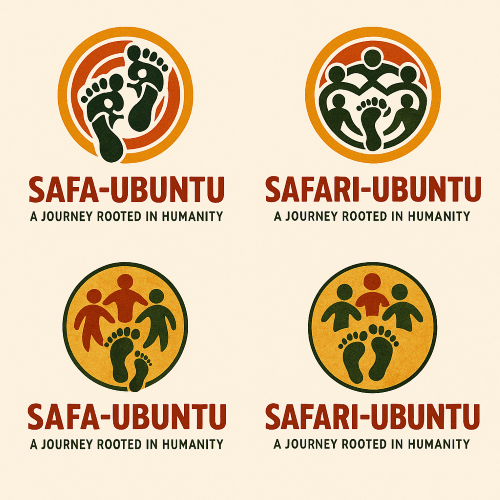US, Indo-Pacific partners announce minerals initiative as Rubio hosts counterparts

Indo-Pacific Quad meeting at the State Department in Washington.
The United States announced the launch of a critical minerals initiative with Australia, India and Japan on Tuesday as part of efforts to counter China, although ties between the partners have been strained by trade frictions and other disagreements.
The four countries, known as the Quad, share concerns about China's growing power and dominance of critical minerals, but relations have been tested by U.S. President Donald Trump's global tariff offensive which has spared none of the members.
In a joint statement after talks in Washington, the countries' foreign ministers said they were launching the Quad Critical Minerals Initiative, which they called an "ambitious expansion of our partnership to strengthen economic security and collective resilience by collaborating to secure and diversify critical minerals supply chains."
Indian Foreign Minister Subrahmanyam Jaishankar said on X the meeting had been "very productive."
In welcoming his counterparts, U.S. Secretary of State Marco Rubio called the Quad countries important strategic partners and said it was time to "deliver action" on specific issues.
He said 30 or 40 companies from Quad countries were scheduled to meet at the State Department on Tuesday to discuss cooperation, including diversification of the supply chain for critical minerals, which is a sector currently dominated by China.
The meeting offered a chance to refocus attention on the region seen as the primary challenge for the U.S. after Trump was distracted by issues elsewhere, including the Israel-Iran conflict. In January, the Quad said it would meet regularly to prepare for a leaders' summit in India later this year.
Rubio also held bilateral meetings with Japan's Takeshi Iwaya, Jaishankar and Australia's Penny Wong, the State Department said.
Wong said on X that what was the second Quad ministerial this year was "a signal of the importance of our partnership and the urgency of the challenges we face."
Trump said on Tuesday Washington could reach a trade deal with India that would help American firms compete there and leave New Delhi facing far lower tariffs, although he cast doubt on a possible deal with Japan by a July 9 deadline for higher levies.
Jaishankar said on Monday there were hopes of bringing the trade talks to a successful conclusion, which would require "give and take" to find middle ground.
After the Quad meeting, Jaishankar went to the Pentagon, where Defense Secretary Pete Hegseth said he hoped India and the U.S. could build on their defense integration efforts.
"We hope we can complete several major pending U.S. defense sales to India, expand our shared defense industrial cooperation and co-production efforts," Hegseth said.
Other issues have put pressure on relations.
India has differed with Trump's claims that his intervention and threats to cut off trade talks averted a major conflict between India and Pakistan after militants killed Indian tourists in the disputed Kashmir region in April.
On Monday, Jaishankar restated India's position that trade was not a factor in bringing a ceasefire with Pakistan, while adding in reference to the U.S. that "relationships will never be free of issues," and "what matters is the ability to deal with it and to keep that trend going in the positive direction."
The joint statement by the Quad top diplomats condemned the April 22 attack in India-administered Kashmir in which 26 people were killed and for which India blamed Pakistan, which denied responsibility.
That attack sparked the latest escalation in the decades-old India-Pakistan rivalry, leading to heavy fighting between the two nuclear-armed nations that was halted by a ceasefire announced on May 10.
TARIFF NEGOTIATIONS
Japan, the key U.S. ally in the Indo-Pacific, postponed an annual ministerial meeting with the U.S. State and Defense Departments that was supposed to be held on Tuesday. Press reports said this move followed U.S. pressure for it to boost defense spending further than previously requested.
Nicholas Szechenyi, at Washington's Center for Strategic and International Studies, said U.S.-Japan ties appeared to have lost momentum since Japanese Prime Minister Shigeru Ishiba and Trump hailed a new golden age in ties at a summit in February.
"The tariff negotiations are all-consuming, and the Japanese appear exasperated by the administration's public lectures on defense spending," Szechenyi said.
The Financial Times said last week the demands came from Elbridge Colby, the third-most senior Pentagon official, whom analysts say has also recently created anxiety in Australia by launching a review of the massive AUKUS project to provide that country with nuclear-powered submarines.
- Questions and Answers
- Opinion
- Motivational and Inspiring Story
- Technology
- Live and Let live
- Focus
- Geopolitics
- Military-Arms/Equipment
- Sicherheit
- Economy
- Beasts of Nations
- Machine Tools-The “Mother Industry”
- Art
- Causes
- Crafts
- Dance
- Drinks
- Film/Movie
- Fitness
- Food
- Spiele
- Gardening
- Health
- Startseite
- Literature
- Music
- Networking
- Andere
- Party
- Religion
- Shopping
- Sports
- Theater
- Health and Wellness
- News
- Culture


